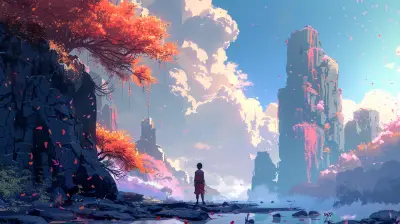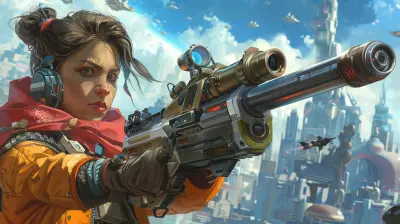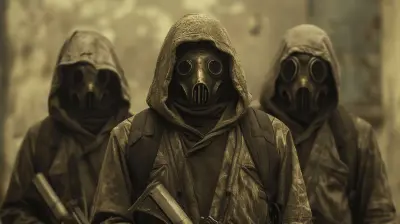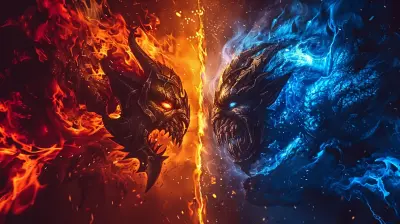How Video Game Heroes Reflect Real-World Struggles
14 May 2025
Video games have long been considered a space for entertainment, where players can escape the chaos of everyday life. But if you look closer, you'll see that video game heroes often mirror the very struggles we grapple with in the real world. Whether it’s a battle against societal expectations, mental health issues, or even political corruption, the struggles showcased in video games hit closer to home than we might first believe.
The beauty of this is that video games don’t shy away from storytelling. They craft heroes who are flawed, determined, and oh-so-relatable, giving us players someone to root for and even learn from. Let’s dive deeper into how these virtual protagonists embody real-world issues and why their struggles remain so relevant.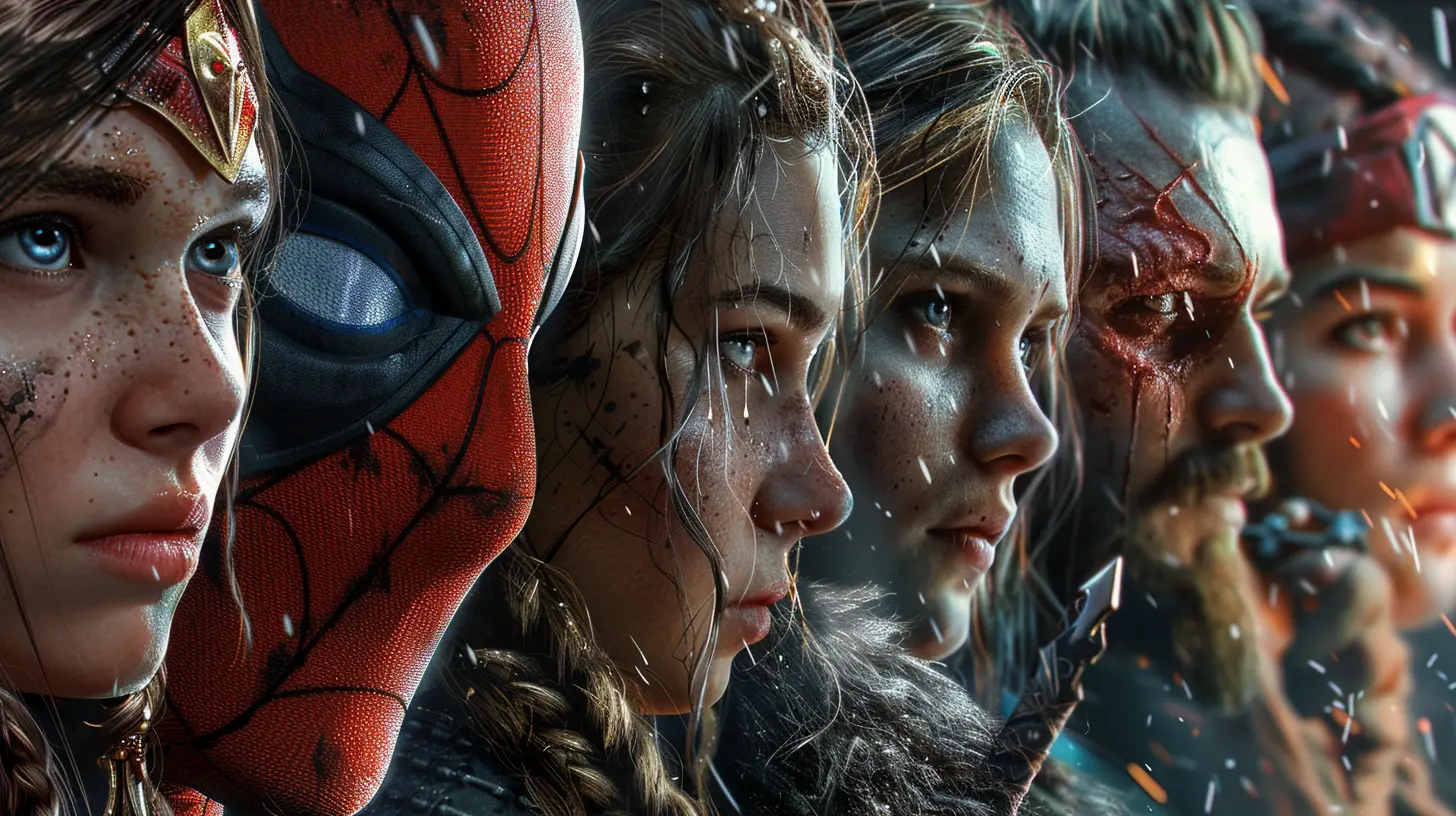
The Everyday Heroes in a Digital World
Picture this: you’re navigating a treacherous terrain as Lara Croft or trekking across a post-apocalyptic wasteland as Joel from The Last of Us. On the surface, their challenges may seem far-fetched—ancient curses, infected monsters, and supernatural artifacts—but strip away the fantasy, and the heart of their stories reflects emotions and dilemmas we all know too well.We’ve all struggled with self-doubt, grief, or the weight of responsibility. These characters just amplify these feelings in exaggerated settings. Their battles are metaphors: Lara constantly challenges societal norms about what a woman “should” be, and Joel’s journey is a complex web of guilt and love—emotions that are anything but alien to us.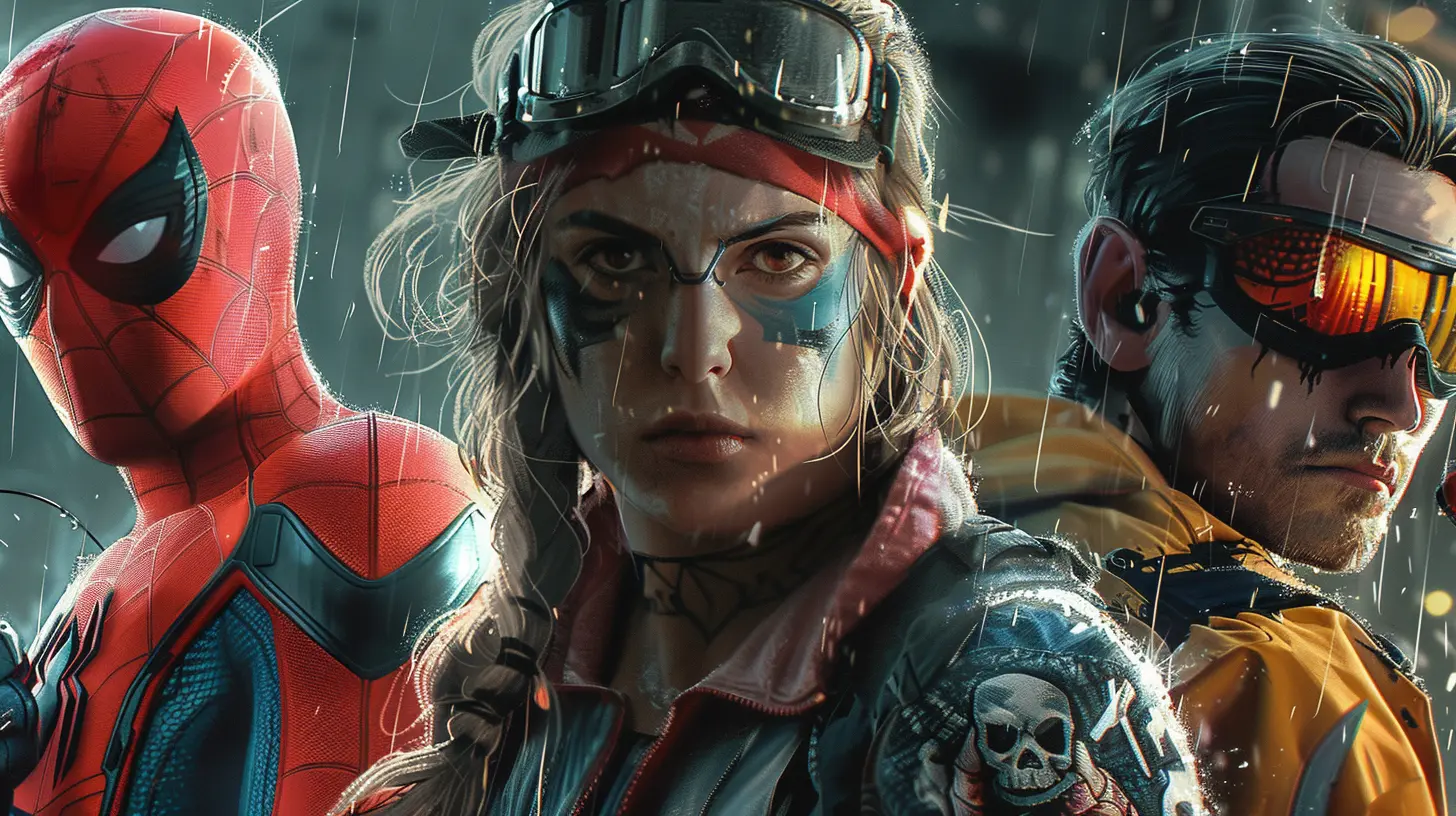
Mental Health Issues: The Silent Villains
In recent years, video games have done a stellar job of portraying mental health struggles. Take Hellblade: Senua's Sacrifice, for example. The protagonist, Senua, battles psychosis, and the game lets players experience the haunting voices in her head firsthand. It’s raw, unsettling, and profoundly real. Mental health isn’t just a subplot here—it’s the essence of the story.The struggles of heroes like Senua remind us how isolating mental health issues can be. Society often labels them as "weaknesses," but games like this flip the narrative. They show us that resilience comes from confronting these battles head-on, even when it feels impossible. Don’t we all have moments when our internal demons seem louder than the outside world?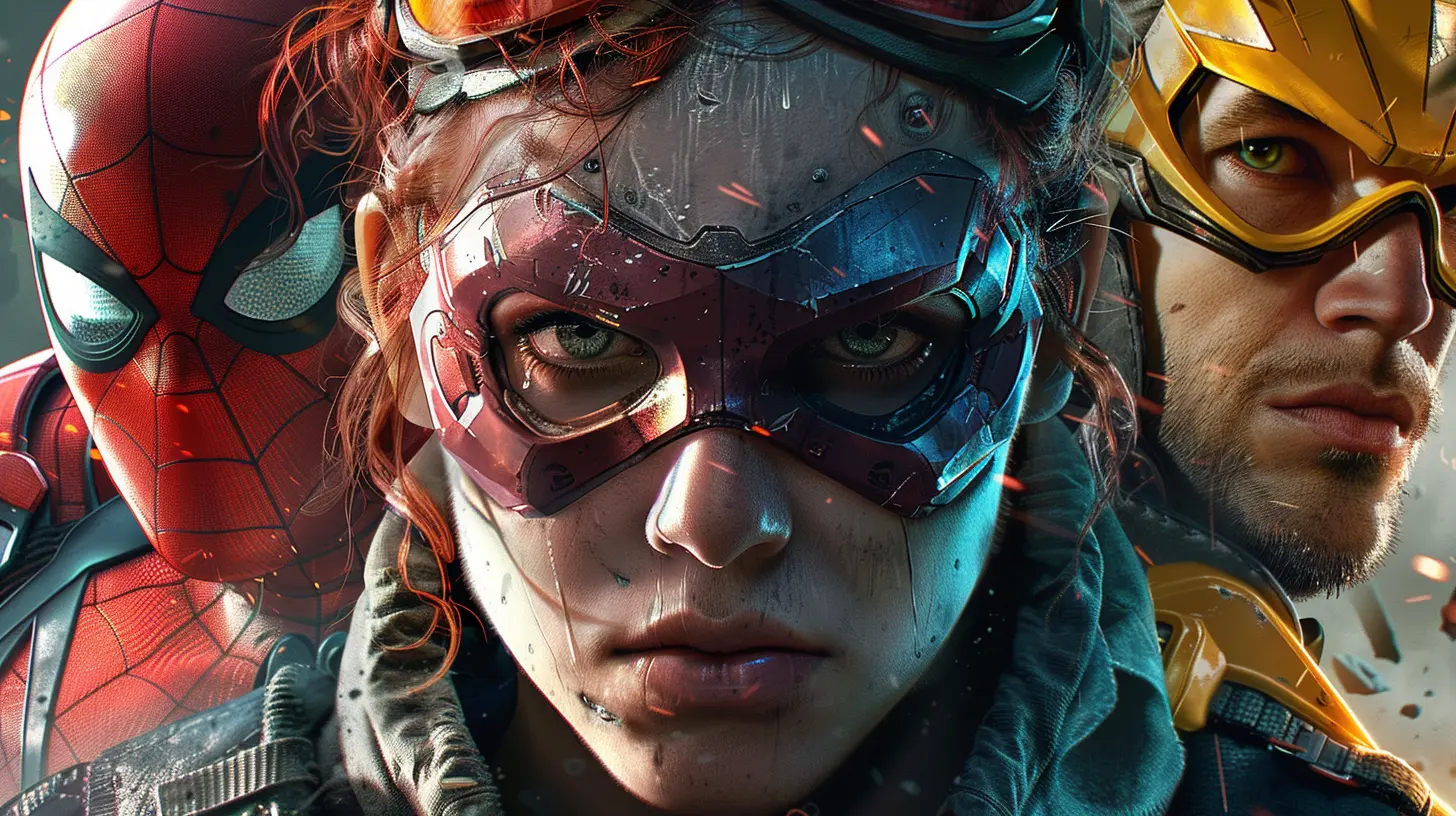
The Fight Against Corruption and Greed
If you’ve ever played a game like Final Fantasy VII or BioShock, you’ve probably noticed themes of greed, power, and corruption lurking in the background—or sometimes right in your face. These games aren’t just about taking down a "bad guy." They’re often a direct commentary on real-world systems.Final Fantasy VII, for instance, highlights the consequences of environmental destruction caused by unchecked corporate greed. Sound familiar? Meanwhile, BioShock questions the extremes of capitalism and societal control. The fictional settings might seem light-years away, but the struggles are grounded in the same societal issues we debate every day.
These games are more than just entertainment—they’re wake-up calls. They subtly (or not so subtly) nudge us to question the systems around us and ask, “Are we really okay with this?”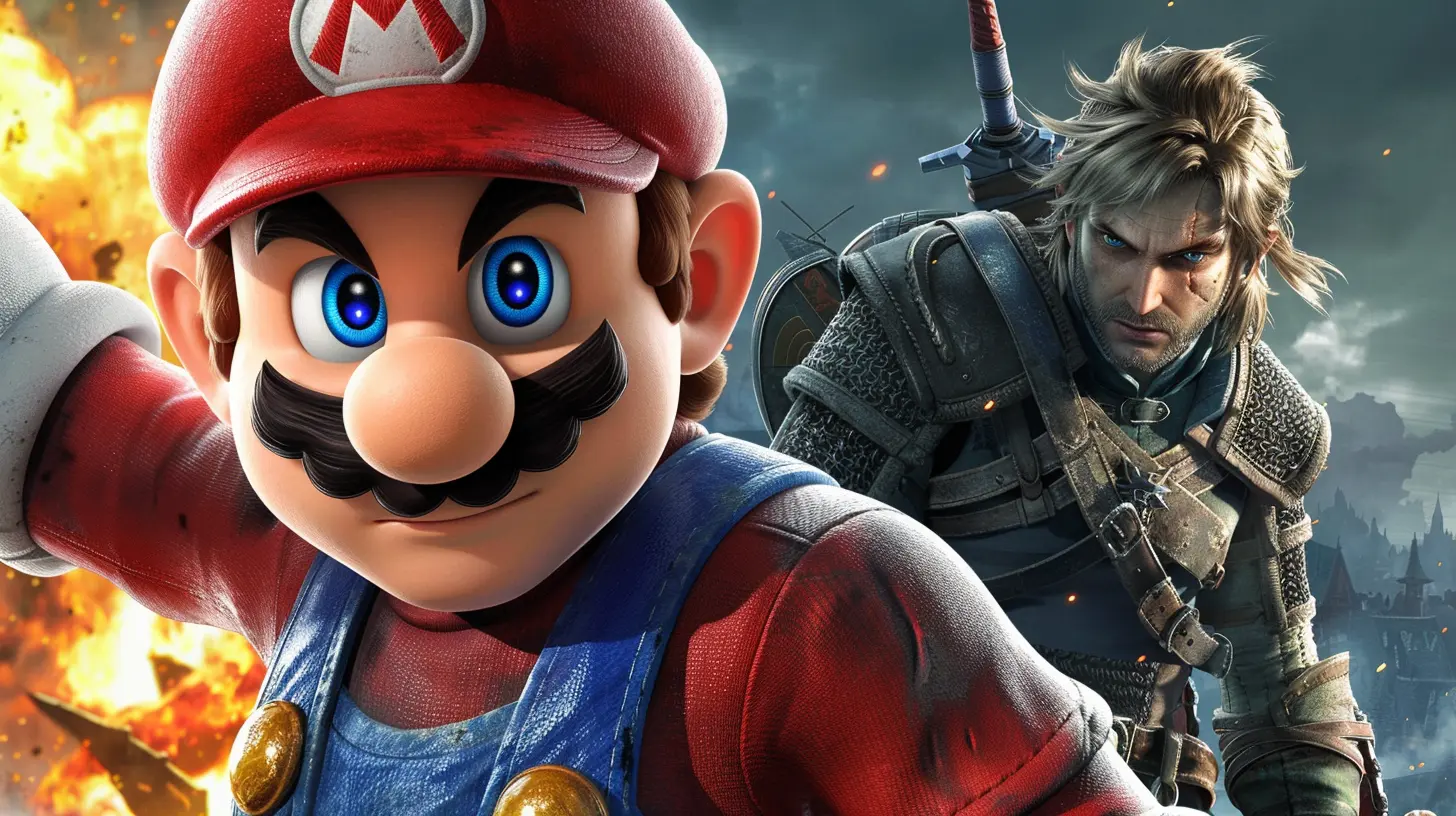
Diversity and Representation: The Struggle for Inclusion
Representation matters, and in the world of video games, it’s been a long road to get it right. For years, protagonists in major titles were predominantly white, male, and cisgender. But the tide is changing, and with it comes a reflection of the real-world fight for equality.Characters like Ellie in The Last of Us Part II or Aloy in Horizon Zero Dawn not only challenge traditional gender roles but also offer nuanced personalities that players can resonate with. Ellie’s sexuality and Aloy’s resilience serve as reminders that diverse stories should have a place in gaming—and in the world at large.
But this isn’t just about gender. Think about Lee Everett from The Walking Dead, or Miles Morales in Spider-Man: Miles Morales. These characters bring racial diversity to the forefront. They confront prejudice and stereotypes—something many players might experience in their own lives.
Games are a mirror, and it’s gratifying to see them reflect a world that’s striving (albeit slowly) toward inclusion. Sure, there’s still work to do, but progress is undeniable.
The Power of Choice: A Reflection of Moral Dilemmas
One of the most compelling aspects of video games is the element of choice. Games like Mass Effect or The Witcher 3 place players in situations where they must make gut-wrenching decisions. Do you save a friend at the expense of an entire village? Do you lie to protect someone’s feelings, or do you deliver the harsh truth?These moral dilemmas aren’t just make-believe. They mimic the complexities of real-life decision-making. In a world filled with shades of gray, video games remind us that there’s rarely a “right” answer. Instead, our choices—and the consequences that follow—define who we are.
Resilience in the Face of Adversity
At their core, most video games are about resilience. Hero faces obstacle. Hero falls down. Hero gets back up. Isn’t that the story of life, too?Take Dark Souls, for instance. It’s a notoriously difficult series that punishes players for every misstep. But it also rewards perseverance. Every time you fail (and you will), you learn something new. Every victory feels hard-earned. Isn’t that just a digital version of bootstrapping your way through life?
In Celeste, players help the protagonist, Madeline, climb a literal and metaphorical mountain. The game openly tackles anxiety and self-doubt, showing us that the real enemy often isn’t an external force but our own inner voice saying, “You can’t do this.” But with enough willpower and patience, you can prove that voice wrong.
Why We Need These Stories
So why do we connect so deeply with video game heroes? Because their struggles remind us of our own. Sure, we might not be slaying dragons or dismantling dystopian regimes, but the underlying themes—loss, love, equality, survival—are universal.These stories remind us that growth often comes from hardship. Heroes might stumble, fall, and even fail, but they always find a way to keep moving forward. Isn’t that the kind of hope we all need?
Final Thoughts: More Than Just Pixels
At the end of the day, video game heroes are more than just pixels on a screen. They’re vessels for storytelling, empathy, and reflection. They remind us that we can overcome adversity, challenge societal norms, and even dare to dream of a better world.So the next time you pick up a controller, take a moment to appreciate the depth of the story unfolding before you. Video game heroes aren’t just saving imaginary worlds—they’re helping us grapple with the challenges of our own.
all images in this post were generated using AI tools
Category:
Video Game CharactersAuthor:

Brianna Reyes
Discussion
rate this article
3 comments
Hunter Dodson
This article beautifully highlights the connection between video game narratives and real-world challenges. It’s fascinating to see how these heroes inspire resilience and empathy, reminding us that our struggles can lead to growth and understanding. Well done!
May 22, 2025 at 5:01 AM

Brianna Reyes
Thank you! I'm glad you found the connection compelling. Video games truly do offer valuable insights into resilience and empathy.
Rhiannon McMurtry
Who knew saving the world from evil overlords could be so relatable? Video game heroes teach us that every dragon we face mirrors our daily struggles—just with slightly fewer health potions and a lot more pizza breaks! 🎮🍕
May 20, 2025 at 2:11 PM

Brianna Reyes
Absolutely! Video game heroes enhance our understanding of resilience and perseverance, making their epic quests a fun parallel to our everyday challenges. 🍕🎮
Marcus Valentine
This article insightfully explores how video game heroes symbolize our real-life challenges, offering relatable narratives and inspiration.
May 14, 2025 at 3:19 PM

Brianna Reyes
Thank you for your thoughtful comment! I'm glad you found the exploration of video game heroes and their connection to real-life challenges insightful.
